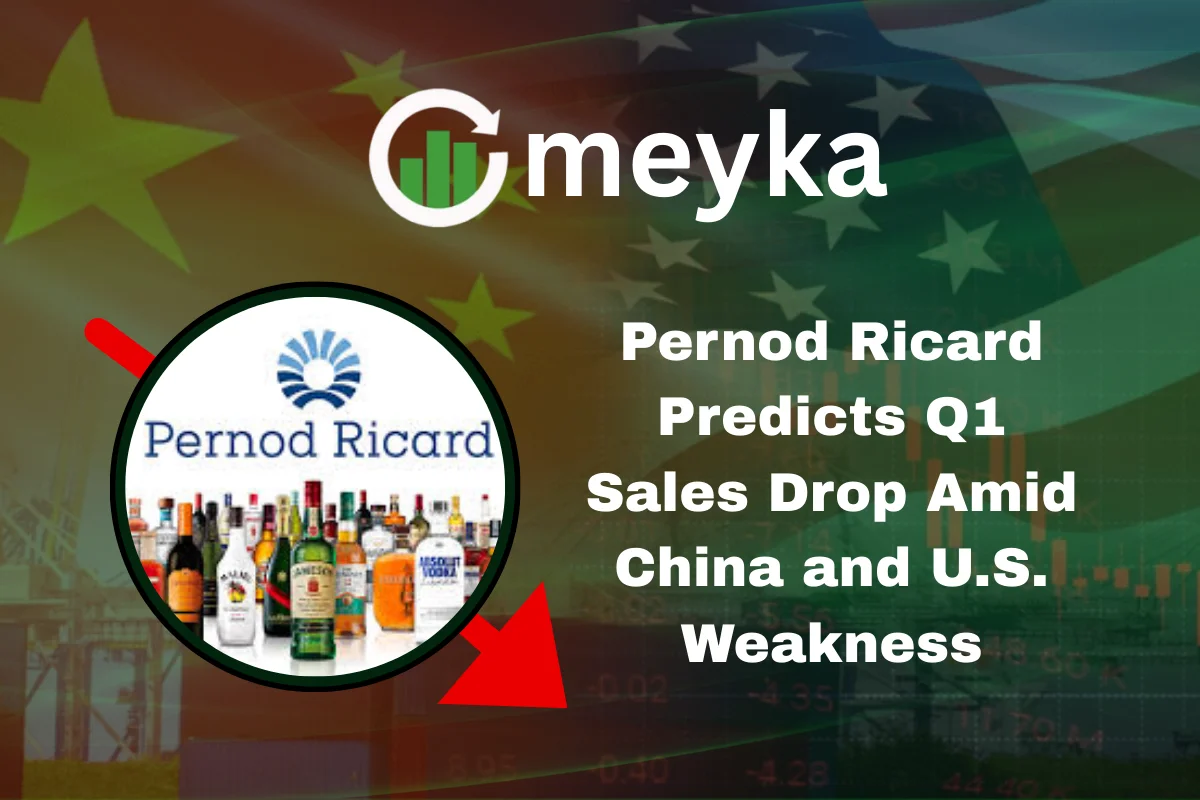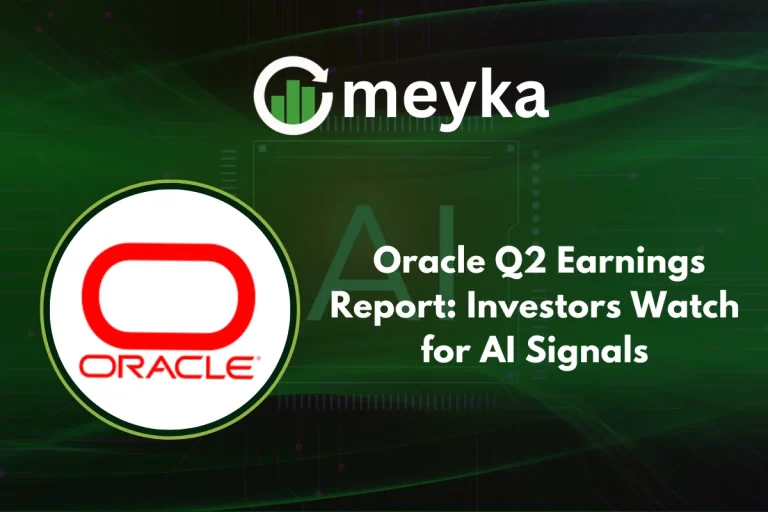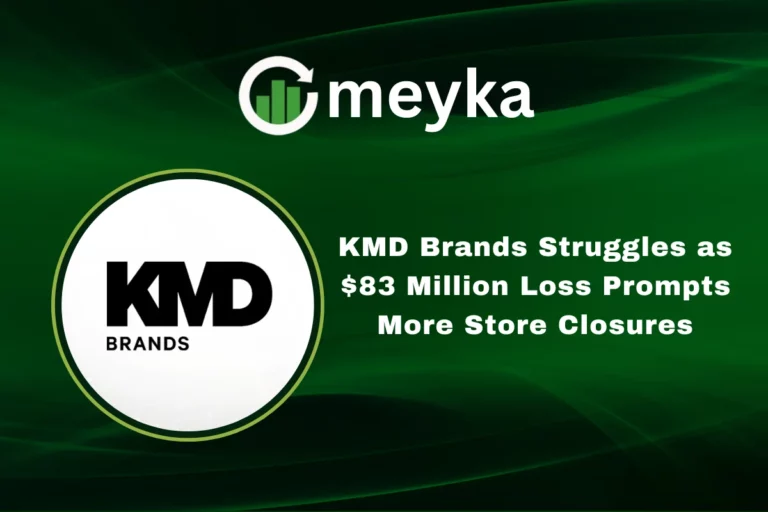Pernod Ricard Predicts Q1 Sales Drop Amid China and U.S. Weakness
Global spirits giant Pernod Ricard has issued a cautious outlook for its first-quarter results, warning investors of a potential sales decline driven by weakness in two of its largest markets, China and the United States. The French beverage maker, which owns world-famous brands such as Absolut vodka, Jameson whiskey, Chivas Regal, and Martell cognac, is preparing for slower consumer demand after years of strong growth post-pandemic.
As global stock markets remain volatile, investors are closely watching how multinational companies like Pernod Ricard navigate shifting demand trends, particularly in markets where consumer spending is tightening.
Pernod Ricard’s Performance Outlook
Pernod Ricard recently signaled that its first-quarter sales are likely to decline, mainly due to subdued demand in China, where luxury spirits are tied to gifting culture and business banquets. The slowdown in China’s economic recovery and weaker consumer confidence have weighed on high-end liquor purchases.

In the U.S., the company faces a different challenge. Retailers are reducing inventory after years of strong restocking, and consumer spending on premium spirits is normalizing. This comes at a time when inflation and rising living costs are reshaping purchasing behaviors.
Despite these near-term issues, Pernod Ricard remains confident in its long-term strategy, focusing on premiumization, sustainability, and expansion in emerging markets to offset regional weaknesses.
Impact of China’s Slowing Economy
China has long been a growth engine for Pernod Ricard, especially through cognac sales. Yet, the country’s sluggish recovery, weaker yuan, and lower corporate spending have slowed demand.
Executives noted that gifting seasons, such as the Lunar New Year, delivered softer results than expected. This has forced Pernod Ricard to adjust its outlook, as luxury liquor sales often reflect economic confidence.
Stock research reports show that many consumer companies in China are facing similar challenges, which could persist in the coming quarters.
United States Market Challenges
In the U.S., Pernod Ricard is facing cautious retailers and softer demand. Inventory adjustments after overstocking have created temporary weakness. Consumers are also more price-sensitive as inflation pressures household budgets.
While brands like Jameson and Absolut remain popular, more buyers are shifting toward affordable alternatives. This could weigh on short-term results, though the U.S. is still a long-term priority market.
Interestingly, the U.S. also leads global trends in AI stocks and technology-driven sectors. While not directly linked, overall U.S. stock market confidence often influences global companies like Pernod Ricard.
Global Strategy to Offset Weakness
Pernod Ricard is working to balance challenges with a clear global strategy:
- Premiumization: Continued focus on high-end spirits with stronger margins.
- Emerging Markets: Growth in India, Africa, and Latin America, where middle-class spending is rising.
- Digital Innovation: Using e-commerce and data to adapt to new consumer habits.
- Sustainability: Eco-friendly packaging and carbon reduction to appeal to younger consumers.
This approach provides resilience, even if China and the U.S. remain weak.
Investor Sentiment and Stock Market Reactions
From a stock market perspective, Pernod Ricard’s cautious message signals broader economic pressures.
Analysts note that while spirits are less volatile than other consumer goods, luxury spending is sensitive to global cycles. With slower growth in Asia and inflation in Western markets, investors may stay cautious in the short term.
However, long-term investors often view such dips as opportunities, given Pernod Ricard’s strong brand portfolio and steady dividend history.
Comparison with Competitors
Competitors such as Diageo, Brown-Forman, and Campari face similar headwinds. The premiumization boom that drove growth is now cooling across multiple regions.
For example, Diageo has reported weaker sales in Latin America, while Brown-Forman expressed caution in the U.S. This suggests Pernod Ricard’s slowdown is part of a larger industry adjustment rather than a company-specific issue.
The Role of Stock Research and Market Trends
For investors, stock research is key to navigating uncertainty. Analysts now look beyond company earnings, focusing on macroeconomic factors and consumer confidence.
At the same time, broader stock market trends such as AI stocks and renewable energy are shifting investment flows. For those focused on consumer companies, diversification remains essential.
Pernod Ricard’s outlook highlights the need to combine sector-specific insights with global market analysis.
Outlook for the Future
Looking ahead, Pernod Ricard expects continued volatility but remains confident in long-term growth. Expansion in emerging markets, premium brand development, and sustainability goals are central to its strategy.
For investors, the key question is whether these moves can offset softness in China and the U.S. While near-term performance may dip, Pernod Ricard’s global scale offers stability.
Conclusion
Pernod Ricard’s warning of weaker Q1 sales highlights pressures facing global consumer brands. Weakness in China and the U.S. reflects broader economic conditions, but the company’s diversified strategy suggests it can adapt.
For long-term investors, short-term volatility may create opportunities, especially as stock market attention shifts to new areas like AI stocks. Pernod Ricard remains a valuable indicator of global consumer spending trends.
FAQs
Pernod Ricard anticipates weaker sales due to slower demand in China and inventory adjustments in the U.S.
It is focusing on premiumization, emerging markets, digital innovation, and sustainability to balance regional weaknesses.
While short-term weakness may weigh on shares, many analysts believe its brand portfolio and global strategy provide resilience.
Disclaimer:
This content is made for learning only. It is not meant to give financial advice. Always check the facts yourself. Financial decisions need detailed research.






